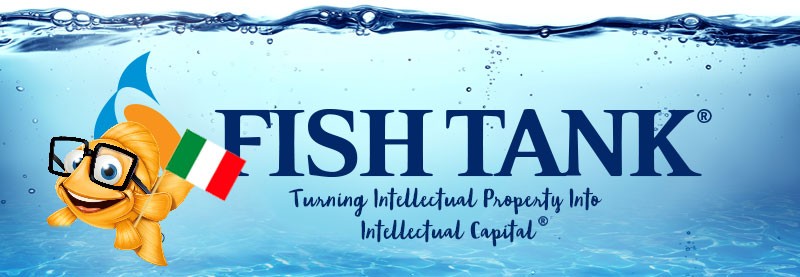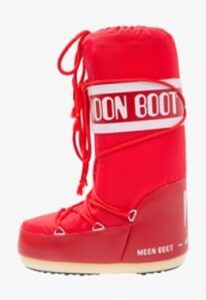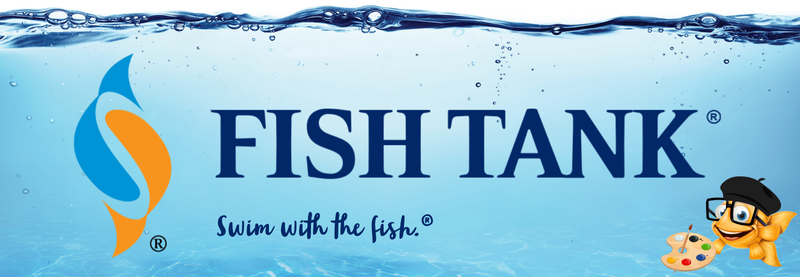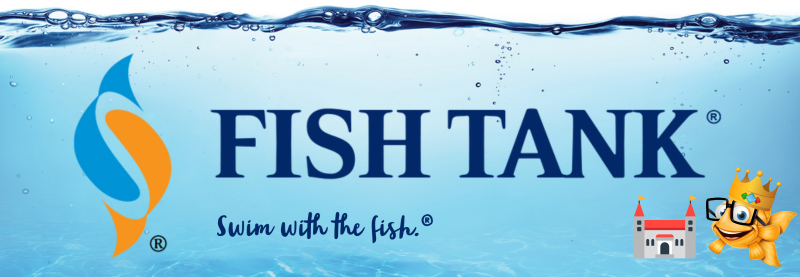Intellectual Property Insights from Fishman Stewart PLLC
Newsletter – Volume 22, Issue 23
Share on Social

COPYRIGHT PROTECTION FOR SHOES, JEWELLERY, FURNITURE? In Italy you can!
By Guest Author: Carlo Sala
Ski Season is nearly upon us! And nothing says après-ski like Moon Boots, the iconic footwear created by Italian shoemaker Tecnica Group in 1969, after the Apollo 11 moon landing. Since then, the boots have enjoyed several waves of popularity as each generation rediscovers their classical style. In fact, in 2000, the Louvre Museum in Paris, France showcased a pair of Moon Boots as one of the 100 most iconic items of the 20th century. And in 2018, the Museum of Modern Art (MoMA) in New York placed a pair of Moon Boots in its permanent art collection.
Even more impressive, is that, as a consequence, Moon Boots are protected by copyright law in Italy. Generally, copyright law protects original works from unauthorized copying. In the U.S., copyright protection generally does not extend to “useful” articles, like shoes, but can protect the designs on shoes, like that of the Yeezy Boost 350 sneakers. However, in Italy, the global fashion powerhouse since the 15th century, copyright law can protect shoes—like Moon Boots.
Italy is a member of the European Union, which has been attempting to harmonize its copyright laws among its Member States. EU Member States are entitled to protect product designs (meaning the appearance of the whole or a part of a product, like the product’s lines, contours, colors, shape, texture and/or materials and/or its ornamentation). But it is up to each Member State, if willing, to grant copyright protection to product designs, and to determine the conditions and scope of copyright protection for product designs.
In Italy, birthplace of the Moon Boots, copyright protection extends to works of industrial design that have inherent “creative character and artistic value.” This means that industrial design works can benefit from copyright protection provided they have creative character (meaning they are an original expression of the author and are an expression of the author’s personality even if they have been inspired by another existing work), and they have an artistic value. Indeed, who decides what has “artistic value” and how?
The Court of Milan had the opportunity to shed some light on this issue. The designer (and well-known Italian influencer) Chiara Ferragni was making and selling “snow boots” that were nearly identical to Tecnica’s famous Moon Boots, and Tecnica sued for copyright infringement. The Court held that the Moon Boots were protected by copyright, in part, due to the “artistic value” of the design. The Court stated that when looking for “artistic value” the judge should look at the cultural sector. The fact that the Moon Boots had been displayed by major museums such as the Louvre and MoMa was decisive to establish their artistic value. The Court held that Chiara Ferragni’s snow boots were infringing and ordered her to stop selling her snow boots and pay Tecnica damages.
However, Italian design, and Italian copyright protection, extends beyond clothing and footwear to other consumer items, and the tendency is to enlarge the scope of protection of copyrightable designs to make it compatible with the existing case law of the European Court of Justice, which is the court that gives preliminary rulings concerning the interpretation of the acts of the EU bodies. Below are examples of designs that are protected in Italy under copyright rules:


Moon Boots LC2 Le Courboisier Armchair
 Panton Chair
Panton Chair
Published November 11, 2022
Fishman Stewart garners repeat recognition by U.S. News & World Report and Best Lawyers® as a tier-one law firm on its annual list of “Best Law Firms”
· Litigation – Intellectual Property
· Litigation – Patent
· Patent Law
· Trademark Law
The 2023 “Best Law Firms” ranking for Fishman Stewart is available here. More information on the 2023 “Best Law Firms” methodology is available here. In addition to U.S. News & World Report, the national and metro Tier 1 rankings will also be published in print in the 13th Edition of “Best Law Firms.”
Related Content from Fishman Stewart
People have long pondered whether or not the Giza pyramids were indeed solely burial chambers, which was the only known, and archaeologically determined, use—until now.
As the story goes, Klein was so taken with the indescribable blue of the sky over the Mediterranean in Nice, France, that he dedicated his artistic talent developing a blue that would imbue the canvas with this color in its purest form.
Despite her pseudo-legal background in Suits, Meghan has been running into one issue after another in her efforts to register the trademark and logo for her new lifestyle company, for now, called “AS EVER”.
By 1930, efforts began in New York to replace Mother's Day with Parent's Day because men were more than just breadwinners. Those efforts didn't catch on, probably because in that era, women often spent more time in the home.
In February, Nike and Skims announced that they will be working together on a new brand, NikeSkims. The co-brand will create a new line of training apparel, footwear, and accessories specifically designed to meet the unique needs of women athletes.
Generally, federal courts have exclusive jurisdiction over copyright cases, and often, this presents an insurmountable paywall for individual artists and small businesses to vindicate their rights, especially where the value of the individual copyrighted works are relatively low.
Dedicated to raising public awareness about the importance of encouraging innovation and creativity throughout the world, the World Intellectual Property Organization (WIPO) annually observes World Intellectual Property Day on April 26 to showcase the role that patents, trademarks, industrial designs, copyrights and trade secrets play in our everyday lives.
Hold onto your foam fingers, sports fans – college sports just got a whole lot more interesting! The latest updates to Name, Image, and Likeness (NIL) rules are making student-athletes bigger than ever, and it’s not just about the game anymore.
Did a federal court in Louisiana recently decide that US copyrights are global rights? It seems so.
L.A.B. Golf aims to protect its innovations, and therefore its market position, owning three patents for its zero-torque design. The question now is whether L.A.B. Golf can withstand the wave of copycat designs.
IDENTIFYING, SECURING AND ADVANCING CREATIVITY®

















